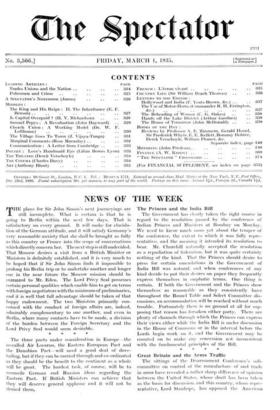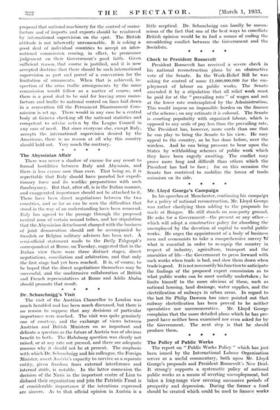Great Britain and the Arms Traffic The sittings of the
Disarmament Conference's sub- committee on control of the manufacture of and trade in arms have revealed a rather sharp difference of opinion between the United States, whose draft has been taken as the basis for discussion, and this country, whose repre- sentative, Lord Stanhope, has opposed the American proposal that national machinery for the control of manu- facture and of imports and exports should be reinforced by international supervision on the spot. The British attitude is not inherently unreasonable. It is asking a good deal of individual countries to accept an inter- national commission coming, in effect, to pronounce judgement on their Government's good faith. Given sufficient reason, that course is justified, and it is now accepted doctrine that there should be such international supervision as part and parcel of a convention for the limitation of armaments. When that is achieved, in- spection of the arms traffic arrangements by the same commission would follow as a matter of course, and there is a good deal to be said for leaving arms manu- facture and traffic to national control on lines laid down in a convention till the Permanent Disarmament Com- mission is set up. There would in any case be a central body at Geneva checking all the national statistics and competent to ad vise acticn by the League Council in any case of need. But since everyone else, except Italy, accepts the international supervision desired by the Americans, there is no reason at all why this country should hold out. Very much the contrary.
* * *



























































